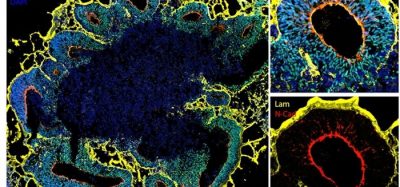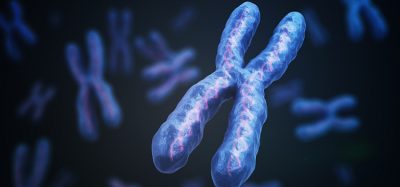Possible novel cognitive anti-ageing targets identified
Posted: 27 February 2020 | Hannah Balfour (Drug Target Review) | No comments yet
Researchers have shown that two epigenetic regulators could be targeted to improve cognitive and behavioural decline in age-related diseases like Alzheimer’s.

Researchers have identified two novel anti-ageing targets that could be targeted by therapeutics to increase the length of a person’s life with healthy brain and motor function. According to the researchers, these targets, epigenetic regulators BAZ2B and EHMT1, could be particularly important in tackling Alzheimer’s disease and other conditions where increasing age is the greatest risk factor.
In the paper published in Nature, the researchers used C. elegans and murine models alongside human datasets to explore the role of genes in cognitive ageing. They performed genome-wide RNAi screen for genes that regulate behavioural deterioration in aging C. elegans and the 59 identified genes were further screened until two remained. They found a neuronal epigenetic reader BAZ-2 and a neuronal histone 3 lysine 9 (H3K9) methyltransferase SET-6 that appeared to be key nodes in the co-expression system they used to analyse the hits.
To analyse this further they deleted the two from C. elegans which the paper says prevented age-related deterioration in the worm’s food intake and male virility.
The researchers identified that the human analogues of BAZ-2 and SET-6 were BAZ2B and EHMT1. Analysis of published databases showed that expression levels of both in the brain increase with age and positively correlate with Alzheimer’s progression. The team highlighted that ablation of Baz2b, the mouse orthologue of baz-2, attenuated age-dependent body weight gain and prevented cognitive decline in ageing mice. They concluded from their findings that BAZ2B and EHMT1 are key ageing modulators and possible novel anti-ageing targets.
Epigenetic regulation and mitochondrial dysfunction
In further experiments the researchers from the Chinese Academy of Sciences (CAS) have shown that BAZ2B and EHMT1 are epigenetic modulators that repress the expression of nuclear mitochondrial proteins, reducing mitochondrial function. According to the scientists, deletion of baz-2/BAZ2B and set-6/EHMT1 delayed the ageing process in the animal models by improving mitochondrial function.
Mitochondrial dysfunction has been implicated in Alzheimer’s, so the researchers further analysed the human datasets and found that the expression levels of BAZ2B and EHMT1 negatively correlate with the expression of key mitochondrial function-related genes. The researchers therefore concluded that BAZ2B and EHMT1 may regulate mitochondrial function in ageing human brains.
According to the team, the reversible nature of epigenetic regulation means that BAZ2B and EHMT1 are highly promising drug targets for combating behavioural and cognitive ageing.
Related topics
Disease Research, Drug Targets, Epigenetics, Neurosciences, Research & Development
Related conditions
Alzheimer’s disease
Related organisations
Chinese Academy of Sciences (CAS)







